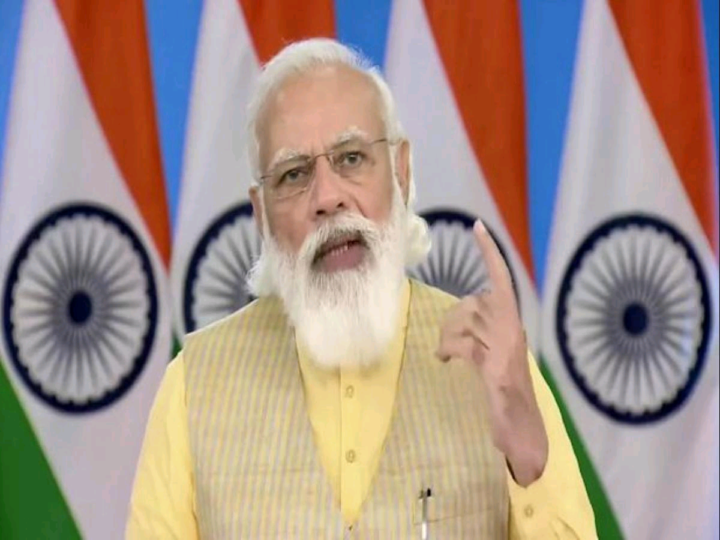After nearly six months in India, Prime Minister Narendra Modi will embark on four foreign visits over the next 40-days, starting with the G7 summit in Hiroshima on Friday and concluding with his first state visit to the US from June 21 to 24, the highlight of which will be his participating in the International Yoga Day event at the UN in New York and a diaspora event in Chicago.

The PM’s previous visit abroad was to the G20 leaders’ summit in Indonesia.
Apart from the G7 in Japan and the US state visits, the PM will attend the Pacific Islands leaders’ meeting in Papua New Guinea (PNG) before heading to Australia to attend the Quad summit on May 24. The Quad Summit in Sydney is the grouping’s third in-person meeting of the leaders of India, Australia, the US and Japan.
Modi and US President Joe Biden would stop at Port Moresby, the capital of PNG, on the way to Sydney for the Quad summit. Modi’s visit to PNG, as part of the Forum for India-Pacific Islands Cooperation (FIPIC) Summit, is vital since China, the US, and its allies are wooing the resource-rich country of 9.4 million people just north of Australia. China and Australia are its most significant aid and infrastructure donors.
On the other hand, New Delhi must be more timely in delivering its promises. According to a press statement by the PNG PM James Marape’s office, he met India’s High Commissioner to Port Moresby, Inbasekar Sundaramurthi, on Friday to discuss Modi’s visit. Marape said Modi will get a 19-gun salute when his plane lands in the PNG capital on May 21. He also spoke of some agreements the two sides could sign, detailing the pending ones.
Marape said the “non-implemented” memorandums of understanding (MOUs) include a US$100 million line of credit from Exim Bank of India for the construction of Madang-Baiyer road and Kimbe-Hoskins Road, another health care and medical science cooperation, both signed in April 2016, a US$150 million line of credit signed in September 2019 at the FIPIC leaders’ meeting in New York.
He told the Indian officials that he asked the departments of Treasury, Works and Health to furnish reports of non-implemented MOUs signed with India and submit them to his office by Wednesday. FIPIC was launched in November 2014 in Suva, the capital of Fiji, with Modi meeting the leaders of 14 Pacific island countries.
Chinese Premier Xi Jinping landed in Suva two days after Modi’s visit. The second FIPIC meeting took place in Jaipur in 2016.
During his upcoming foreign tours, Modi will have the opportunity to meet Biden in Hiroshima and Sydney, on the sidelines of G7 and Quad summits, before the Indian PM lands in the US for his first state visit to that country in June. The last state visit by an Indian prime minister was when Barack Obama hosted Manmohan Singh in November 2009.
A state visit involves elaborate ceremonies, including a flight line ceremony (where the visiting head of state is greeted at the tarmac after landing), a 21-gun salute White House arrival ceremony, a White House dinner, an exchange of diplomatic gifts, an invitation to stay at the Blair House (the US President’s guesthouse across the Pennsylvania Avenue) and flag lined street. Modi’s visit includes a state dinner on June 22, the Ministry of External Affairs said.
The June 21 visit will be Modi’s sixth to the US since 2014.
Apart from diplomatic engagements at the UN and Washington DC, his past visits have involved a community reception by the Indian diaspora. In September 2014, the PM addressed the Indian diaspora at New York’s Madison Square Gardens and five years later, with US President Donald Trump by his side, in Houston.
The Indian diaspora, especially Gujaratis, has been a pillar of support for the BJP and, most recently, contributed to the party’s Gujarat assembly poll campaign in November-December 2022.
Modi’s meetings with world leaders at Hiroshima, and his visit to the US, come months before India hosts the G20 summit in New Delhi in September. Keeping aside their disagreements over the Russia-Ukraine war, India-US relations have seen greater synergy in recent months, with Biden appointing Eric Garcetti as the US ambassador to India and focusing instead on issues where the two countries agree, such as the Chinese assertiveness in the Indo-Pacific.
Biden and Modi, the MEA spokesperson said, “would reflect on their shared vision for a free, open, and inclusive Indo-Pacific and discuss opportunities to expand and consolidate the Quad engagement.”
The PM’s upcoming foreign visits are necessary for India’s strategic interests. Biden and Modi, and their respective delegations, will review bilateral relations in several sectors, such as technology, trade, industry, education, research, clean energy, defence, security, healthcare, and deepening people-to-people connections. With Lok Sabha elections ten months away, the visits are vital politically as these would also showcase Modi’s standing as a world leader to the home electorate.
Support InfoStride News' Credible Journalism: Only credible journalism can guarantee a fair, accountable and transparent society, including democracy and government. It involves a lot of efforts and money. We need your support. Click here to Donate
